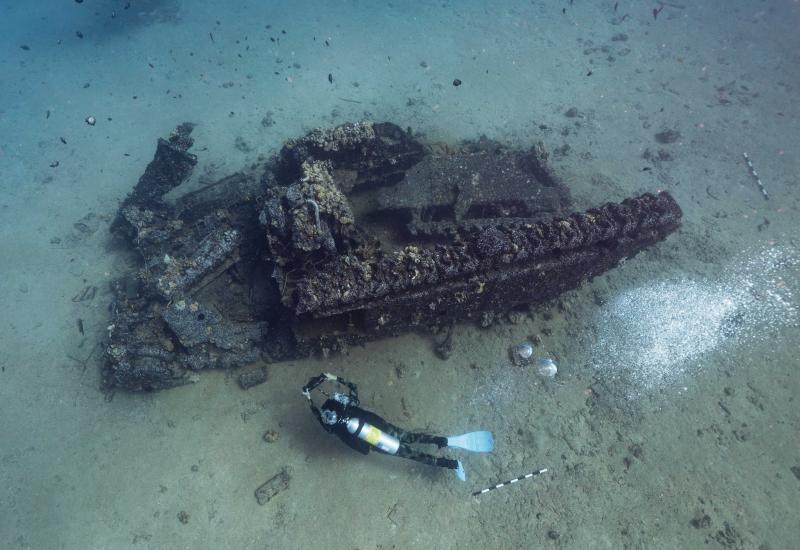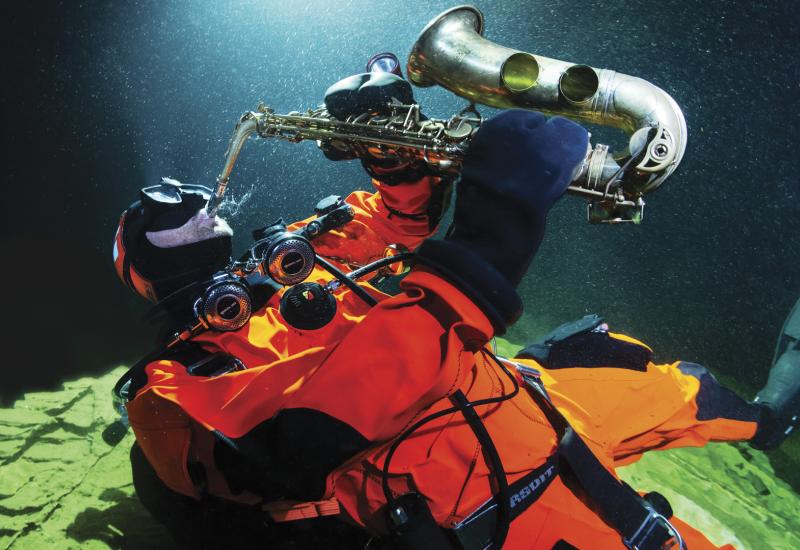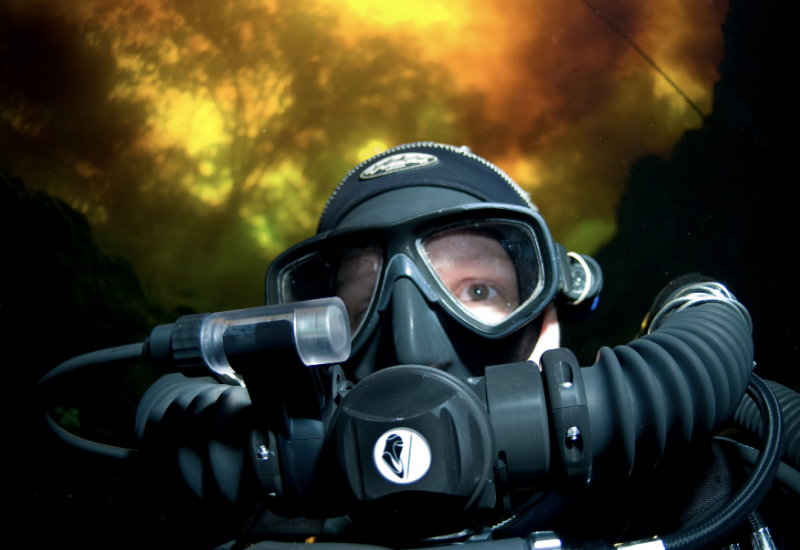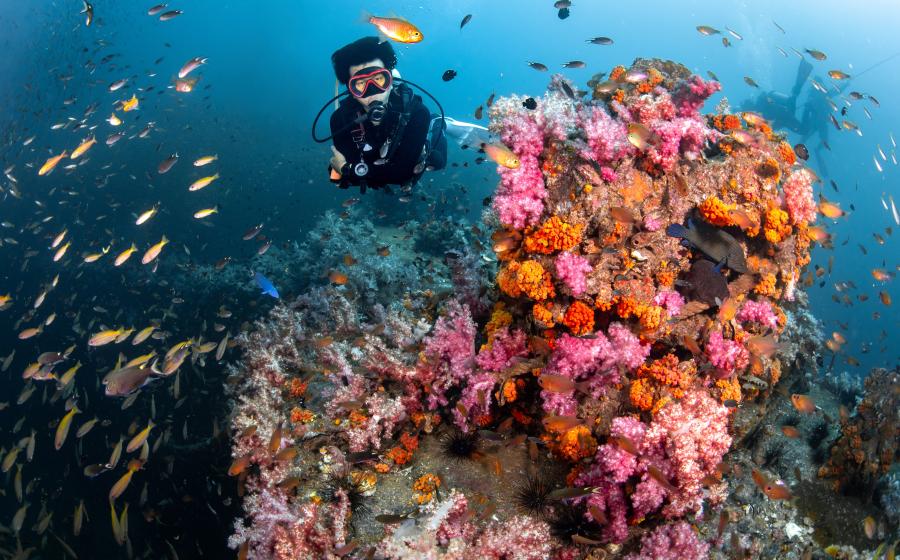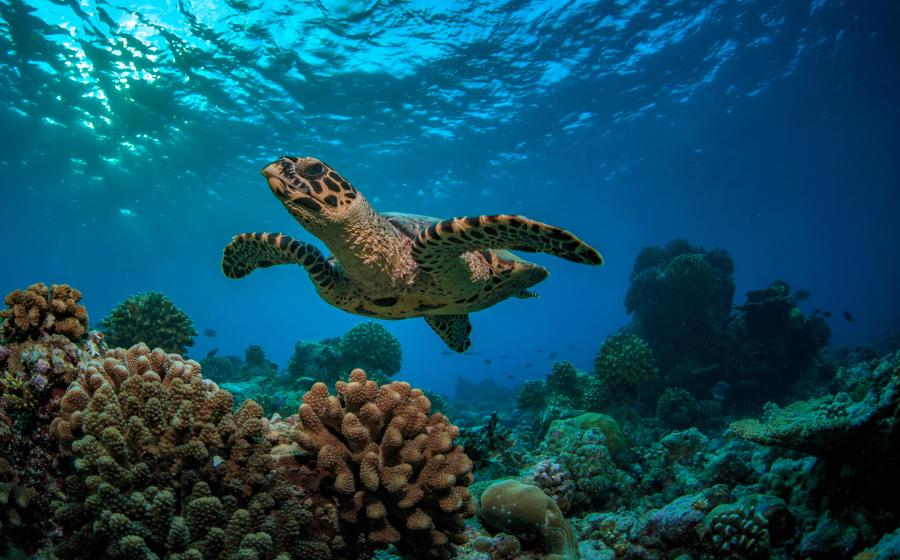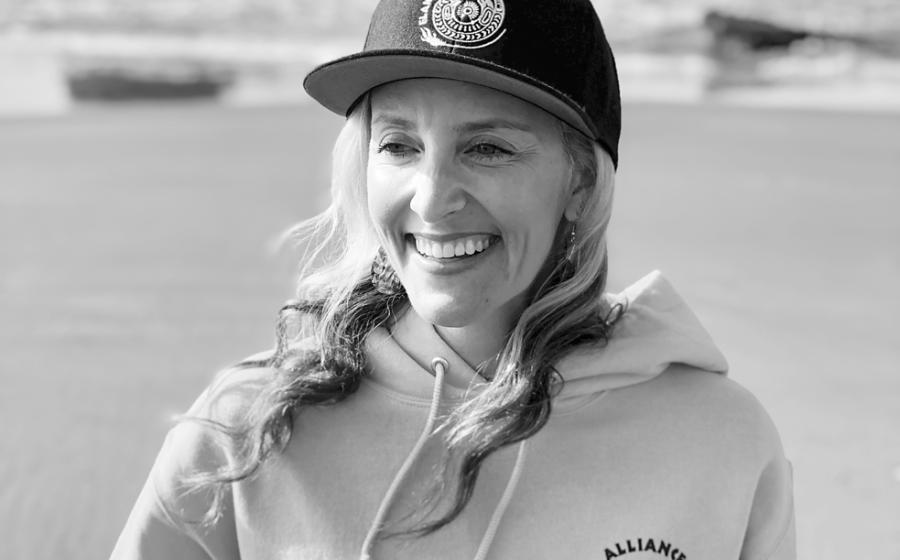Facing Fear With Cristina Zenato: Trust Your Gut
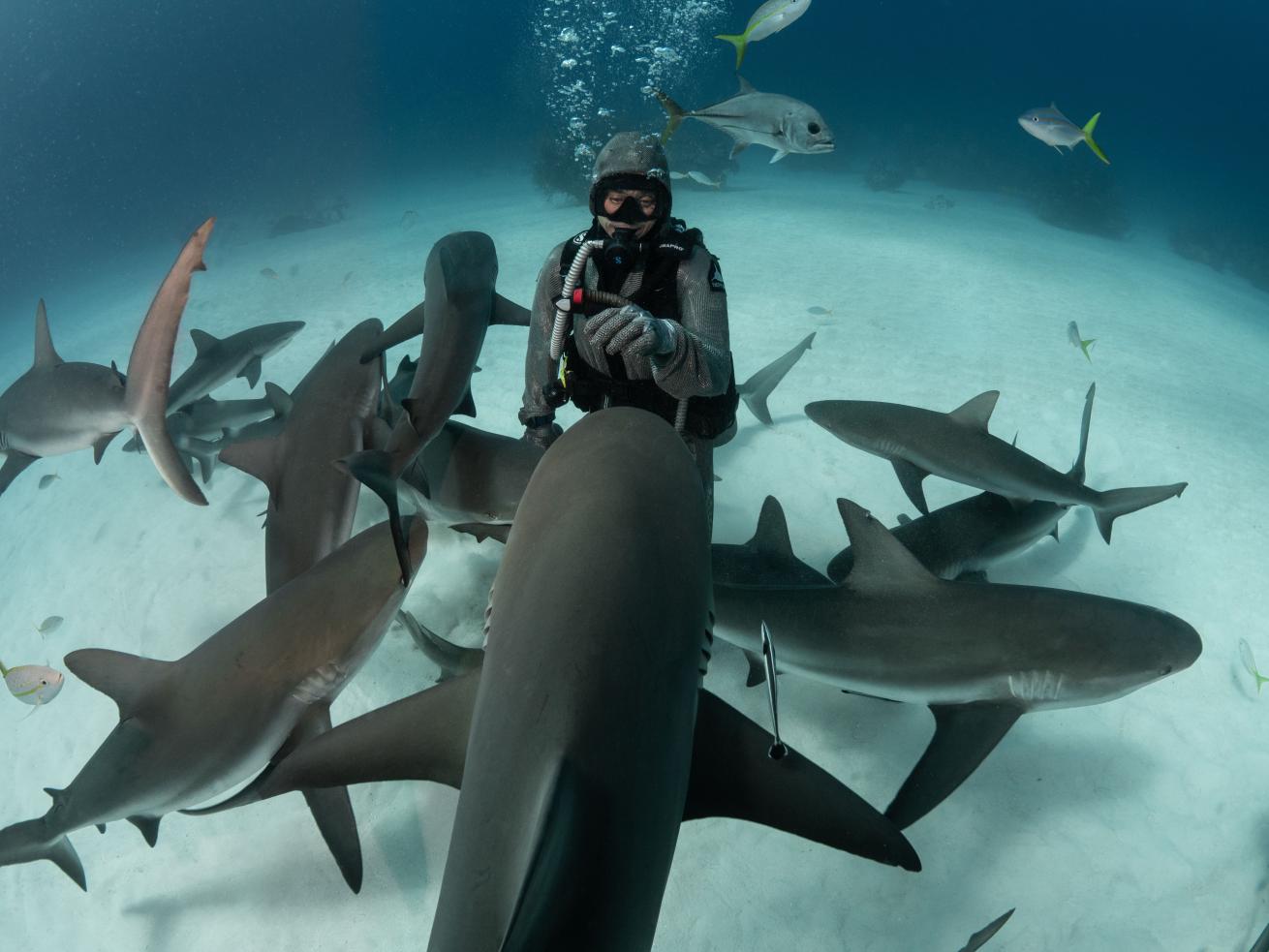
Kewin LorenzenCristina Zenato has spent most of her career working closely with Caribbean reef sharks. She removes hooks from the sharks' mouths and works to raise awareness for their importance in the greater ecosystem.
Cristina Zenato is an Italian explorer based on Grand Bahama Island. A passionate shark advocate and conservationist, Cristina works to change the public perception of sharks. She is an active tec instructor and cave explorer and was the first woman to connect a freshwater cave with the ocean, unlocking an understanding of how the Earth’s water systems are connected. She fights for the conservation of cave systems through her mapping and expedition work and through public speaking.
When you're afraid, how does it feel (physically) in your body?
For the initial response, I have the traditional hair rising on the back of my neck; it goes “Zing!”. And that is very much a warning sign, like a bell. Everything that comes into play after that is based on trained instincts. My reaction to fear tends to be quiet. I pause. My heart rate and breathing rate get very slow and I become super sharp focused and methodical in my physical movement. Although my reactions might be fast, they're very precise. The reason I can do that is because I've been practicing, practicing, practicing.
How do you know when fear is just a little bit of anxiety or a healthy dose of fear versus a fear that's telling you something's wrong?
I think that it's a fine line. You have to listen to the gut feeling. Feeling a little bit nervous before a dive is OK because it is going to cause a little bit of adrenaline and focus, but there’s a huge difference between that and a gut feeling that says “No, no, no, stop it right now.” And you have to learn how to follow that. When you can acknowledge it—that anxiety and fear—you can get a better analysis of it and where it is coming from. It’s when you ignore that gut feeling, due to peer pressure or time pressure, that you can get into trouble. When I follow my gut, as soon as I make that call to end a dive, I don't question it. I know it was a good call, and the burden of the world lifts off my shoulders.
Related Reading: Delve Into Tec Diving on a Red Sea Vacation
Have you ever felt that gut feeling and ignored it?
No, I haven’t ignored it, I always try to acknowledge it and invite it in for tea and cookies. I say to it: “Hi, you're here. Welcome! What can I do for you? Why are you here?” When you do that, you can find the reason for the fear and decide if you are going to follow that by calling the dive and heading out, or maybe you do your checks and everything is okay.
What advice would you give someone who is trying to overcome a fear?
The same thing we teach in open water is what we use in exploration: Stop, Breathe, Think, Act. The first thing to do to overcome fear is to understand what triggers it. Some fears come from accumulated experiences that we try to put in a box and ignore. So if a fear is hindering you, it’s time to open that box and go through it and say “What is it really that I am afraid of? What is the deepest thing?” Then, slowly chip away at it. Do research, read and talk to other people who manifest the opposite of your fear.
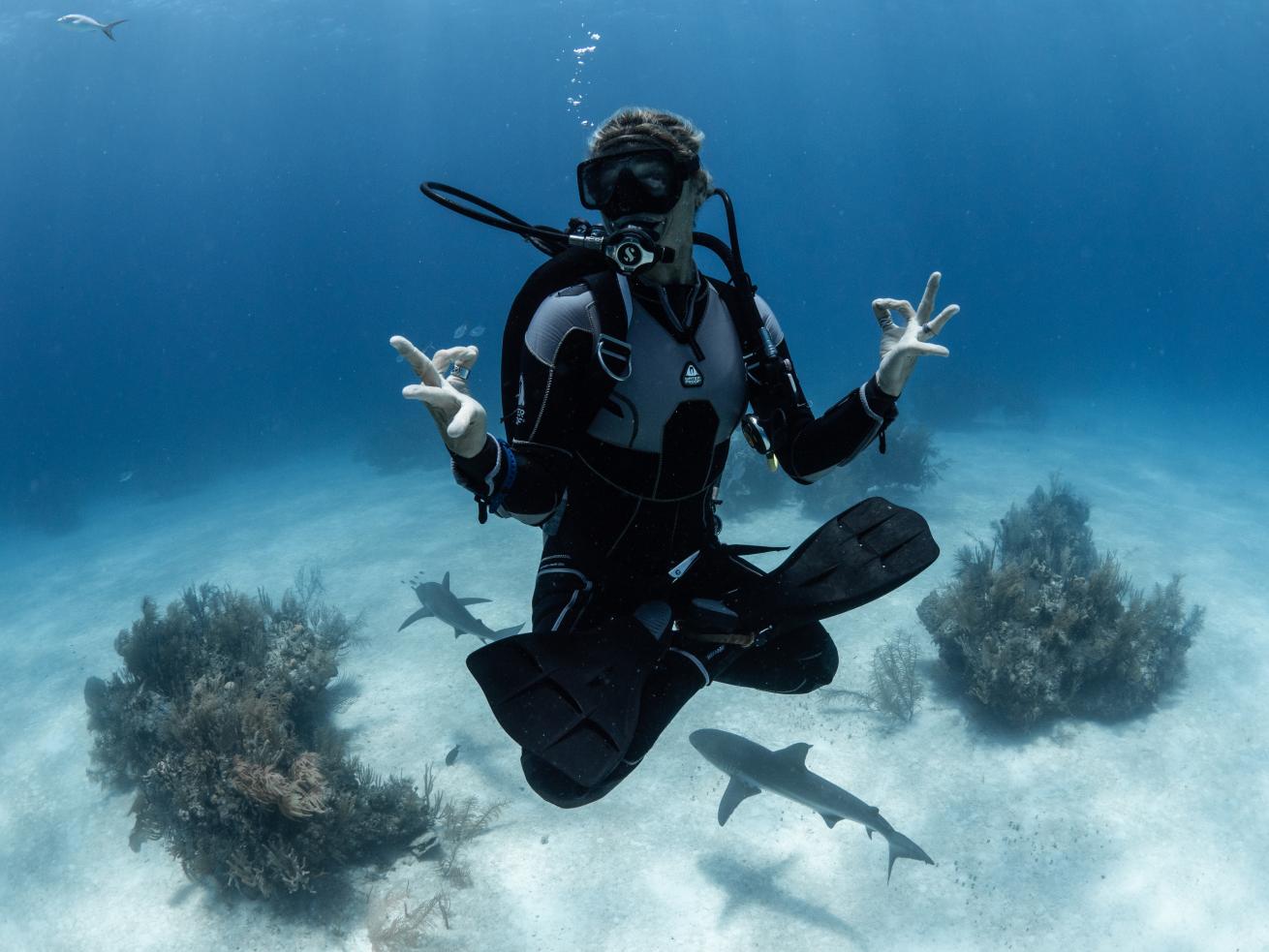
Kewin LorenzenIn her element underwater, Zenato focuses on understanding the root of her anxieties and fears to overcome them.
What is your relationship like with death?
Death is very much a companion. I have lost quite a few acquaintances—but also very close friends—to the path of exploration. So death is something that I think is very present, and because it's very present it is acknowledged but not feared. It's not a taboo presence in our conversations, in our preparedness, in all of that. When we cave divers lose somebody, we talk about and mourn them. Sometimes we review why and how the death happened. Then we go back to the same place that took away our friend. But in a certain way, I think this honors the spirit of humankind. We are explorers at heart, and we wouldn't be where we are if every time we had a failure or a death people go “Woah woah woah, let's not try that ever again.”
What's something you used to be afraid of that you aren't anymore?
Pleasing everyone! I used to be afraid of people not liking the way I thought or what I thought, what I spoke about, or what I stood for. I think the younger self tries to please everyone and everything. And I'm no longer afraid of that. I explored enough to find a little bit more about myself, and I found a way of being at peace with it. I will not please everyone, and that’s okay.
Related Reading: How Underwater Mapping Is Changing the Dive World
What is a limiting belief that you're still holding on to?
Sometimes I still feel that I'm not good enough. At times, as I'm about to do something, like stepping on a stage to talk to a crowd of 1,000 people, I'm like, “What am I doing here?” That belief of not being good enough has unfortunately been instilled in all of us through an I.V. for years, drip by drip by drip. But then, you know, I still summon the courage and go and do it. But do have doubts when I sit there? Yes. If I had fewer doubts, maybe I would have done a couple of extra things. And it's not really in a world of cave exploration or underwater exploration. I would say more in my personal life, I would have launched into a couple of things with a little bit more courage.
Do you have a motto that you live by?
Like Marie Curie said: “Nothing in life is to be feared, it is only to be understood. Now is the time to understand more, so that we may fear less.”

